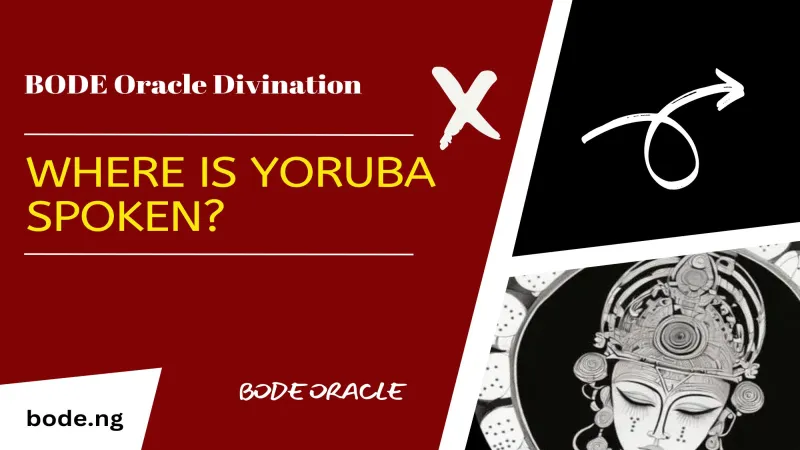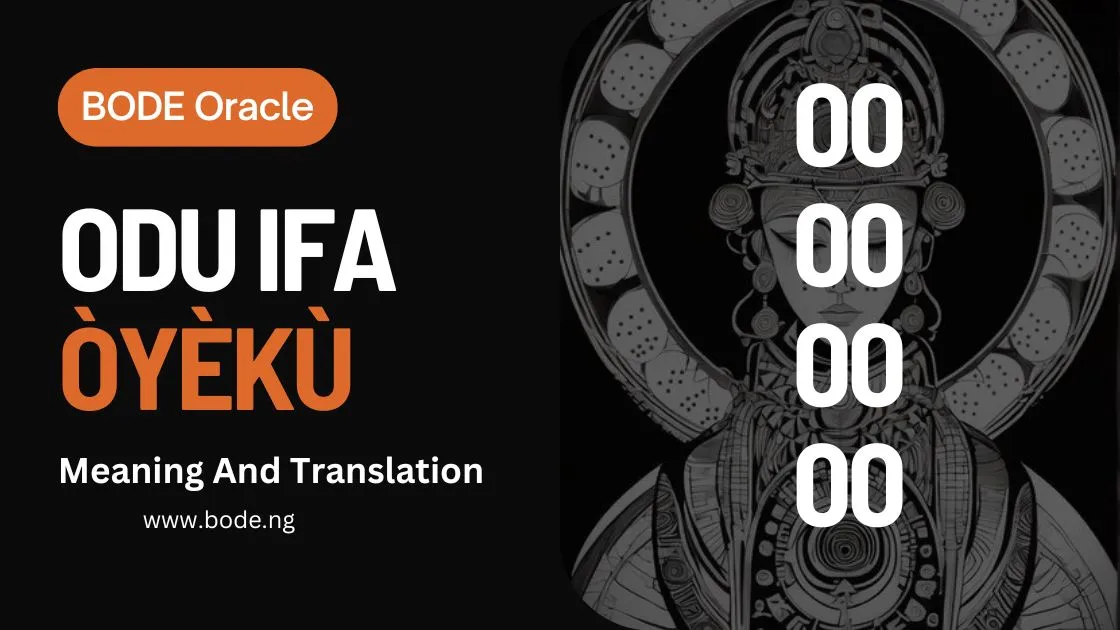Yorùbá is one of the three major languages spoken in Nigeria, the most populous country in Africa. As a language of a people rather than a single nation or continent, Yorùbá is also spoken in parts of Togo, Ghana, the Republic of Benin, Sierra Leone, Brazil, Cuba, the Caribbean, and beyond.
It is the language of the Yorùbá people worldwide, including those in the United Kingdom. The language comprises about twenty dialects, each exhibiting phonological and lexical differences.
Some of these dialects are spoken along the borders of Nigeria, the Republic of Benin, and parts of Togo. Yorùbá has also endured in Cuba, where it is known as Lukumi, and in Brazil, where it is referred to as Nago.
Yorùbá is widely spoken in regions such as Sierra Leone, Venezuela, Trinidad, Tobago, Puerto Rico, and Haiti. It continues to be a language of great interest to linguists around the world.
Yorùbáland is more than a geographic region; it is the cultural and historical heartland of a rich and enduring tradition.
Yorùbá is widely spoken in the West African countries of Nigeria, the Republic of Benin, and parts of Togo and Sierra Leone, making it one of the most prominent languages in sub-Saharan Africa. The language has also found a presence in Cuba and Brazil.
Read More
Brief History of Hermeneutics in Relation to Odu Ifa
The Yorùbá language, known for its richness and melodious tone, originates from the Yorùbá people, predominantly located in southwestern Nigeria.
This region, referred to as Yorùbáland, includes the bustling cities and tranquil villages across Lagos, Ogun, Oyo, Osun, Ondo, Ekiti, and parts of Kwara and Kogi States.
The ancient city of Ile-Ife serves as the spiritual and historical center of Yorùbá civilization. According to Yorùbá mythology, Ile-Ife is the cradle of humanity, where deities descended to shape the world.
This deep cultural heritage imbues the Yorùbá language with a profound sense of identity, connecting modern speakers to their ancestral lineage.
The influence of Yorùbá extends beyond Nigeria’s borders. It thrives in neighboring countries like the Republic of Benin and Togo, where Yorùbá-speaking communities continue to flourish.
The resilience and adaptability of the Yorùbá people have further spread their language far beyond West Africa. In the Americas, Europe, and the Caribbean, Yorùbá remains a cherished language among descendants of the Yorùbá diaspora.
The transatlantic slave trade forcibly displaced millions of Africans, including Yorùbá speakers, to the New World. Despite immense challenges, they preserved their language and traditions, which now thrive in places like Brazil, Cuba, and Trinidad and Tobago.
Modern migration has further dispersed Yorùbá speakers worldwide. From London to New York, vibrant Yorùbá communities keep the language alive, contributing to the multicultural fabric of these cities.
Yorùbá is celebrated through music, dance, festivals, and religious practices, underscoring its enduring vitality and global significance.
People Also Read
Opon Ifa The Ifa Divination Tray
Ifa Divination And How It Can Solve Your Problems
Yoruba Mythology Deities And Orisa
What Are The Yoruba Speaking Countries?
1. Salvador, Brazil
Brazil, a country with deep African roots, is home to a significant Yorùbá-speaking population. Salvador, the capital of Bahia, is a prominent city located in the southern region of the country along the Atlantic Ocean.
Yorùbá culture is particularly influential in this area, where deities such as Ogun, Yemoja, Sango, and Egungun are actively worshiped.
The presence of the Yorùbá in Salvador dates back to the transatlantic slave trade centuries ago, during which many Africans were forcibly transported to Brazil.
Despite enduring immense hardship, the Yorùbá people have shown remarkable resilience, preserving their traditions and cultural practices.
Yorùbá worshippers in Salvador are often recognized by their white garments, which symbolize purity, and they are led by priests and priestesses in religious ceremonies.
These rituals are accompanied by traditional sacrifices at the shrine and dances to the rhythmic beats of the Ilu Agere, a traditional drum, creating an unforgettable cultural experience.
Another notable aspect of Yorùbá culture in Salvador is their enduring love for Akara (bean cake). This meal, prepared using traditional ingredients such as beans, onions, palm oil, and pepper, mirrors the recipe used in Nigeria and is a staple in the local diet.
2. Sierra Leone
Sierra Leone, a West African nation, holds a rich historical and cultural heritage. In the 15th century, Portuguese explorer Pedro de Sintra discovered the harbor of Freetown, naming the surrounding hills Serra Lyoa (Lion Mountains).
The country is among the most notable Yorùbá-speaking nations globally. Liberated Yorùbá slaves who settled in Sierra Leone during the mid-19th century are known as the "Oku" or "Aku" people.
They primarily reside in areas such as Banjul, Fourah Bay, Fula Town, and Aberdeen Village. These individuals were predominantly Yorùbá traders from Abeokuta and Lagos.
The Oku people, descendants of freed Yorùbá Africans, established a distinct community in Sierra Leone as early as the 1840s, contributing to the country's diverse cultural landscape.
3. Benin Republic
The Republic of Benin, formerly known as Dahomey, is a West African nation with Porto-Novo as its capital. However, the seat of government is located in Cotonou, the country’s economic hub and most populous city.
Benin's economy relies heavily on agriculture. As one of the Yorùbá-speaking nations, Benin shares significant ethnic and historical ties with Nigeria.
The Yorùbá community in Benin, known as "Ketu," is led by their traditional ruler, the "Alaketu," who traces their lineage to Ile-Ife in Nigeria.
Historically, Ketu is considered one of the original kingdoms established by the descendants of Oduduwa. Some accounts suggest that Ketu was subordinate to the Oyo Empire, paying annual tribute.
Despite varying historical narratives, the close relationship between Oyo and Ketu remains undisputed, strengthened by their shared cultural, historical, and ethnic bonds.
When Ketu was part of Oyo's forces, they often engaged in battles against Dahomey but were eventually defeated in the 1880s, leading to many being sold into slavery.
4. Togo
Togo, a West African nation and one of the Yorùbá-speaking countries, shares notable cultural and historical similarities with Nigeria. Its capital, Lomé, stretches to the Gulf of Guinea.
During the 16th to 18th centuries, Togo’s coastal region served as a European slave trade hub, earning it the name “The Slave Coast.” Atakpamé, a town in Togo, bears striking resemblances to Abeokuta and Oyo in Nigeria.
Like these Nigerian states, Atakpamé is surrounded by seven mountains, evoking parallels to Abeokuta's Olumo Rock and Oyo's Oke Ibadan, both of which hold ancestral significance.
Additionally, Atakpamé shares historical and geographical similarities with Idanre in Ondo State, a town known for its majestic mountains.
The Ifè Togo dialect of Yorùbá is spoken by approximately 90,000 people in Atakpamé. The Ifè community in Togo originated from settlers who migrated from Dahomey and established Atakpamé.
Ifè Togo preserves the authenticity and tonal richness of the Yorùbá language. Every word retains tone markings, including the mid-tone, which is no longer marked in contemporary Yorùbá writing in Nigeria.
Additionally, certain consonant combinations that have been altered in Nigerian Yorùbá remain intact in Ifè Togo. For example, words like “Oshogbo” and “Ogbomosho” are now written as “Osogbo” and “Ogbomoso” in Nigeria but retain their older forms in Togo.
5. Côte d’Ivoire
Côte d’Ivoire, located in West Africa, has Yamoussoukro as its capital, while Abidjan serves as the largest city and economic hub. The country's official language is French, but indigenous languages are also widely spoken.
Among the early migrants to Côte d’Ivoire were the Ejigbo people, who initially settled in Ghana, Togo, and Benin before moving further west.
Ejigbo, a city in Osun State, Nigeria, was founded by Akinjole Ogiyan, a descendant of Oduduwa. Alongside his brother, the founder of Ikire-Ile, Akinjole left Ile-Ife with Oranmiyan to establish their own towns.
Akinjole eventually became a paramount ruler over several villages in Yorubaland. Since the early 1900s, the Ejigbo people have a long history of migration to Côte d’Ivoire.
In their communities, they refer to their leader as “Oba,” with titles such as “Oba Aboba” or “Oba Treichville,” depending on their location.
The head of the Ejigbo community in Abidjan is known as the “Oba Abidjan.” The Ejigbo people's entrepreneurial spirit has made Abidjan a thriving and welcoming hub for Yoruba speakers, solidifying their presence in the city.

.webp)

